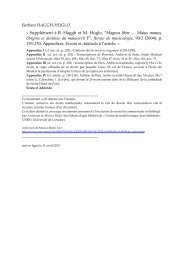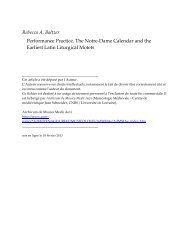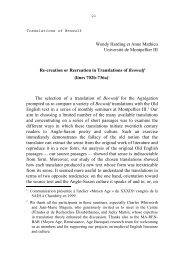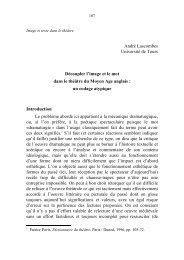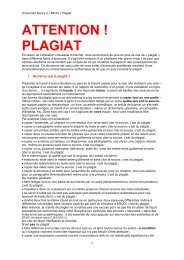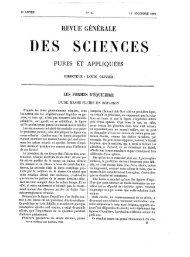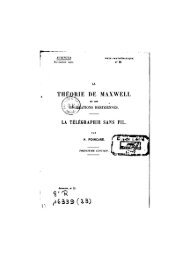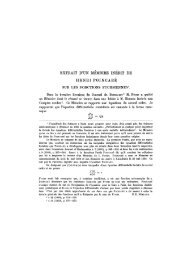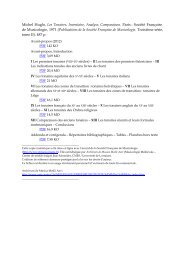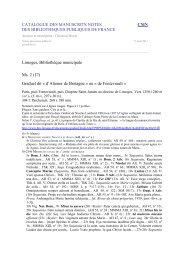You also want an ePaper? Increase the reach of your titles
YUMPU automatically turns print PDFs into web optimized ePapers that Google loves.
146_(12U<br />
Maria K. Greenwood<br />
(f) Past Simple of action and situation, undated, a vague past<br />
permitting unclear memory, supposition or invention = "I did /<br />
was once" eg.: "I was once a pilgrim and went on pilgrimage"; or<br />
"I dreamt / imagined / pretended I was a pilgrim and went on<br />
pilgrimage."<br />
(g) Past Perfect of action and situation, chronologically precise by<br />
relating to another verb = "When I had done / been something, I<br />
did / was something else", eg. "When I had saved up the money, I<br />
went on pilgrimage", or as Indirect Speech with the verb of<br />
reporting, eg. "I told him that I had gone on pilgrimage in 1499."<br />
(h) Past Perfect of action and situation, chronologically imprecise, the<br />
"legendary past" which refers to no clearly datable or real past<br />
and relates to no other verb = "I had done / been once", eg. "I<br />
had been on pilgrimage in my dreams" or in Free Indirect<br />
Speech: "He had been on pilgrimage in his dreams."<br />
This last, the Past Perfect, is the most important of the Past tenses for<br />
the following analysis since, as (g), it is the most precise. With<br />
another verb it conveys a chronologically precise notion of the order<br />
of events and, as Indirect Speech, refers to a unique moment of<br />
enunciation. As (h), however, when it is unsupported by any other<br />
verb mentioning two actions in a series, the Past Perfect becomes the<br />
vaguest of the Past tenses, and its anteriority disappears. Used without<br />
another verb, the Past Perfect refers vaguely to separate moments in<br />
the past by relating separate actions to separate moments of utterance.<br />
The conjunction of consecutive verbs in the Present tenses gives<br />
the same precise notation of time as in the Past Perfect (g), and in a<br />
similar way permits the use of the "when / then" constructions which<br />
convey a very clear notion of real time. It is precisely in this way



